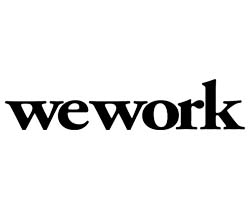WeWork (WE) Stock Surged In Its Market Debut After SPAC Merger
WeWork’s (NYSE: WE) stocks rose this week in light of its’ market debut, after a tumultuous journey that included the implosion of its previous initial public offering (IPO) plans and the ouster of co-founder Adam Neumann.

The listing came following a merger with the special purpose acquisition company (SPAC) BowX Acquisition Corporation (NASDAQ: BOWX). The combination provides WeWork with cash proceeds of about $1.3 billion, and a valuation of around $9 billion. This marked a major step down from the valuation of $47 billion WeWork commanded in 2019, following an investment from SoftBank Group in the private markets.
“Today is a testament to the determination of our company to not only transform our business, but also to adapt and deliver the options that today’s workforce demands,” said WeWork CEO Sandeep Mathrani in a statement released Thursday. Earlier this month, the company reported preliminary third-quarter revenue of $658 million, up from $593 million in the second quarter. Total occupancy across consolidated operations rose to 60% at the end of the third quarter. That was an increase from 52% at the end of the second quarter.
What Is WeWork & Why Are Some Investors Interested?
WeWork was founded in 2010 in New York and has expanded to more than 500 locations over 100 cities. The company leases office space and charges membership fees to customers, including freelancers, start-ups and small and large businesses. The business targets those who might prefer the flexibility of such an arrangement over a traditional office lease. The latter may last for years and come with other operational inconveniences.
[Read More] 3 Top Real Estate Stocks To Watch In October 2021
WeWork Pioneered & Popularized The Co-working Space Trend
Before, with few exceptions, if one wanted to rent office space as an individual or a new company, it was one unpleasant hassle. Pricing was certainly complex with some hidden fees that might show up on your monthly bill. Not only that, some would request a personal guarantee. That means the tenant would be personally on the hook for the remaining rent even if your businesses fail. Thankfully, WeWork eliminated all those hassles and complicated costs for customers. It makes renting space so much easier, even on a month-to-month basis.
Admittedly, flexible office space was not new. But WeWork said its business could not only revolutionize how people worked, but also change how people lived and thought. More importantly, the company has SoftBank to thank for its successful debut. The Japanese conglomerate remains its largest investor and has invested more than $17 billion into the firm since 2017. With strong backing from SoftBank and a huge valuation back then, why did the company abort its IPO in 2019, you ask?
Second Time’s The Charm?
WeWork had to abort its IPO attempt 2 years ago after public listings revealed that the company was hemorrhaging cash. Not to mention, then-CEO Adam Neumann was accused of using WeWork to enrich himself via mass private shares sell-offs and by leasing buildings he owned to the company. Following this piece of news, Neumann was forced to resign, and 2,400 people were laid off as a result. Its largest investor, SoftBank had to write down billions on its own investment to bail out the company.
Just as the company was trying to get back on its own feet, the company had to face another blow, namely the COVID-19 pandemic. WeWork lost $888.8 million in the second quarter. The company has been slashing costs under the leadership of CEO Sandeep Mathrani and is aiming for profitability next year. Now, WeWork has removed almost $2 billion of annual costs by paring back lease commitments and administrative expenses. Certainly, successfully cutting costs is one thing. But the startup also faced concerns around its valuation.
WeWork’s failure to turn a profit has prompted some analysts to question why it commands a valuation which is roughly double that of rival co-working company IWG (OTCMKTS: IWGFF). The company operates the Regus and Open Office brands, just to name a few. It also has far more offices, more desks, and was consistently profitable before the pandemic.
[Read More] Top Reddit Stocks To Buy Right Now? 5 For Your Late 2021 Watchlist
Remote Work Is Here To Stay & The Pandemic Could Be A Blessing In Disguise
The pandemic presented WeWork with challenges, but some might also say, opportunities. With so many companies shifting to remote work not just temporarily, but also permanently, landlords everywhere have had to adjust. And WeWork is no exception. For one, WeWork realized its membership-only plan was not going to cut it. And a dip in membership was evidence of that.
So, it worked to open its buildings to more people through the On Demand and All Access options. The goal was to give people who were weary of working out of their own homes a place to go, say once a week, to work. In addition to that, the company also has partnerships with universities that wanted to give their students an alternative place to study through the All Access offering.
Evidently, how people work has changed more since the start of the pandemic than it has over the past two decades. Some are calling it a revolution because employee preferences are dictating the future of the office environment. And one trend is surfacing is coworking. According to Coworking Space Global Market Report 2021, the global coworking space market could grow from $7.97 billion in 2020 to $8.14 billion in 2021 at a compound annual growth rate (CAGR) of 2.1%.
[Read More] 5 Financial Stocks To Watch In A Rising Interest Rate Environment
Bottom Line On WeWork Stock
Admittedly, WeWork has been taking measures to increase its revenue and lowering its losses. But these measures aren’t set to pay off until the medium to long term. Now, the company’s vision for the future centers around the ways in which companies are reimagining their workspaces in the wake of COVID-19 pandemic.
If anything, the pandemic recovery has since accelerated the demand for flexible workspaces. This comes as more workers shift toward hybrid or permanent remote work. Whether WeWork could capitalize on this trend would largely depend on how Mathrani executes its space-as-a-service business model as the company moves forward. With the company continuing to adapt and offer new services, it will be interesting to see how it all goes from here.







